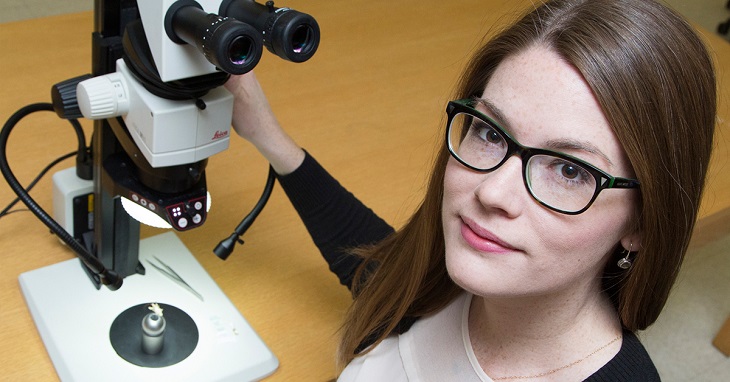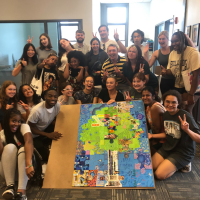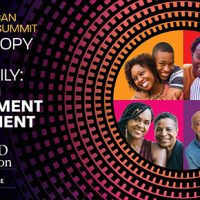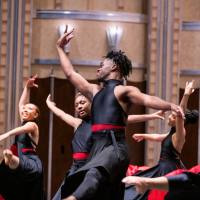Our #CommonGroundCLE Conversations guest blog series showcases groups across Cuyahoga County hosting community conversations July 30 as part of our Common Ground initiative. The Cleveland Museum of Natural History’s conversation, focused on the question “How can we advocate and inspire girls and women to pursue STEM careers?” will take place from 10:30 a.m. to noon on Sunday, July 30 in the Rare Book Room on the museum’s upper floor. In this blog, meet a few of the table hosts who will participate in the conversation:
How did you become interested in science?
Nicole Gunter: My childhood was spent watching David Attenborough documentaries and exploring the creek behind my parent’s house. I collected beetles and tried to identify fish, frogs, snakes, and birds. I never really thought about zoology or entomology as a career, but continued to elect general science subjects in school. When it came to applying to universities, a Bachelor of Science was the only degree that made sense to me. It wasn’t until my final year that everything really fell in to place and set me on my path.
Sydney Brannoch: I became interested in science through family hikes and camping trips. These outdoor activities were supplemented with encyclopedias and National Geographic magazines, which I read with great enthusiasm each weekend. In high school, I bought several field guides and went on walks around my neighborhood, attempting to identify what I saw.
When did you become interested in your area of expertise?
Brannoch: I became interested in entomology when I took my first formal university course on the subject. This interest in entomology blossomed when I began rearing insects as pets. I kept praying mantises, walking sticks, rhinoceros beetles, hissing cockroaches, and even a tarantula.
Nicole Burt: Learning about people who lived in other places always fascinated me. In fourth grade, I had an amazing teacher who gave me a word for that — anthropology. I’ve been an anthropologist ever since.
Did you have a mentor?
Elizabeth Reinthal: There are two mentors I would consider influential in my scientific career. One is my father. He instilled an appreciation of the natural world and always encouraged me to do my best. The other is Dr. Mark Wilson, my undergraduate academic advisor. He was, and continues to be, so supportive of my paleontology endeavors.
Brannoch: A Ph.D. student who was a Teaching Assistant for an introductory entomology class. He made the field of entomology accessible and went out of his way to showcase many of the methodologies employed by systematic entomologists. This included taking me insect collecting, teaching me how to curate and preserve specimens, and showing me a major museum’s insect collection.
What advice do you have for aspiring female scientists?
Reinthal: The trope that girls aren’t good at math and science is a myth: we as educators need to make sure that the girls we’re teaching know that they can do anything.
Gunter: Pursuing a scientific career is challenging regardless of gender; without the underlying passion it’s difficult to remain invested. It’s important to encourage those with a scientific passion to pursue their interests and to keep asking questions about problems they want to solve.
Burt: I think there is a myth that you have to be a certain kind of person to be a scientist — a special genius. Anyone can be a scientist. More diversity in the scientific community results in more diversity in scientific ideas. It would be easier to be a genius, but most success comes from spending time working at it.
Check out the full interview here.
Common Ground at the Cleveland Museum of Natural History (CMNH)
Rare Book Room, Cleveland Museum of Natural History, 1 Wade Oval Drive, Cleveland, OH 44106
10:30 a.m. – 12 p.m.
A continental breakfast with an assortment of fruit and pastries will be available



